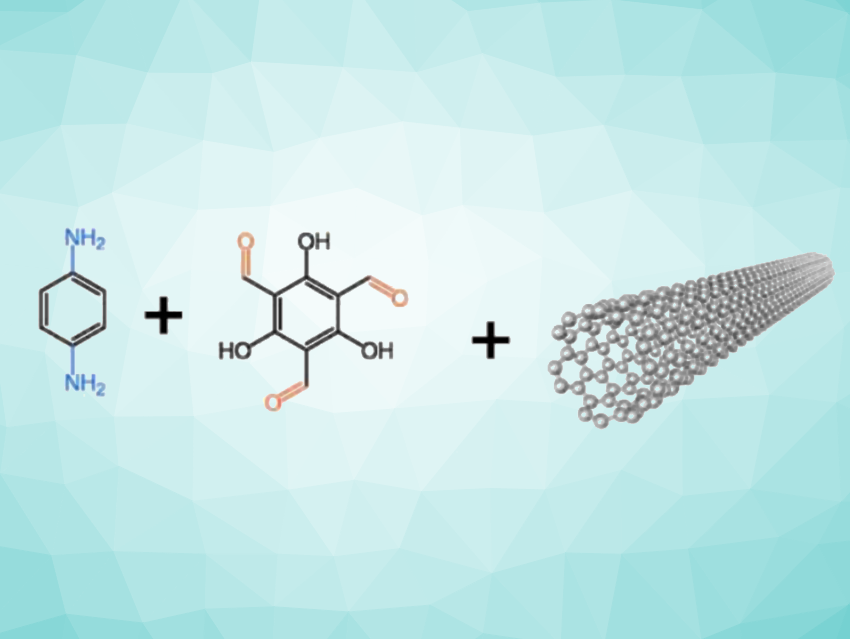Lithium-ion batteries (LIBs) are widely used in portable electronics and electric vehicles. However, lithium resources are limited, which can pose a challenge for sustainability and for large-scale energy storage, in particular. Potassium is significantly more Earth-abundant, and potassium-ion batteries (PIBs) could serve as an alternative to LIBs. However, this requires suitable anode materials. Redox-active covalent organic frameworks (COFs) could be promising for organic electrodes, but their inherently low conductivity significantly hampers their use.
Xiaosi Zhou, Nanjing Normal University, China, Qichun Zhang, City University of Hong Kong, Kowloon, Hong Kong SAR, China, and colleagues have developed a method for growing a COF on carbon nanotubes (CNTs) to tackle this issue. The team used a solvothermal method to in-situ polymerize 2,4,6-triformylphloroglucinol (TP) and p-phenylenediamine (PA) on the surface of carbon nanotubes, resulting in a “nanocable”-like composite.
The resulting nanocomposite combines the high specific surface area and active-site density of COFs with the high conductivity of CNTs. The COF contains β-ketoenamine groups, which promote potassium ion adsorption. The nanocomposite was used as an anode material in potassium-ion batteries and displayed excellent performance. It showed a high reversible capacity and good stability after many cycles.
- In Situ Growth of Covalent Organic Frameworks on Carbon Nanotubes for High‐Performance Potassium‐Ion Batteries,
Dongbo Yan, Lili Song, Fangyuan Kang, Xiangyin Mo, Yanqi Lv, Jianlu Sun, Haowei Tang, Xiaosi Zhou, Qichun Zhang,
Angew. Chem. Int. Ed. 2024.
https://doi.org/10.1002/anie.202422851


